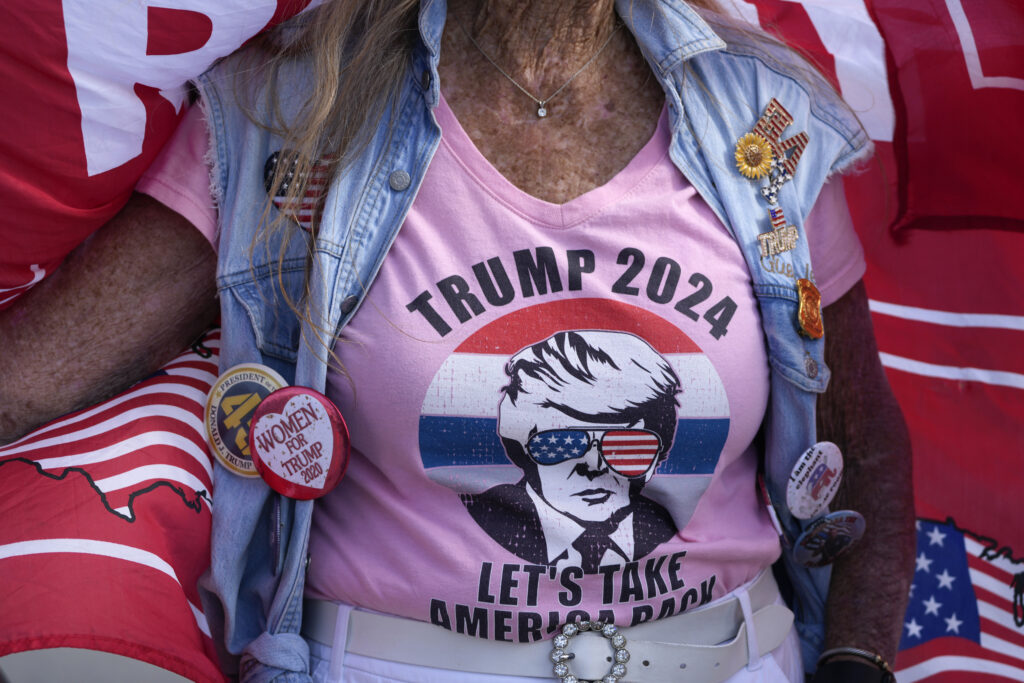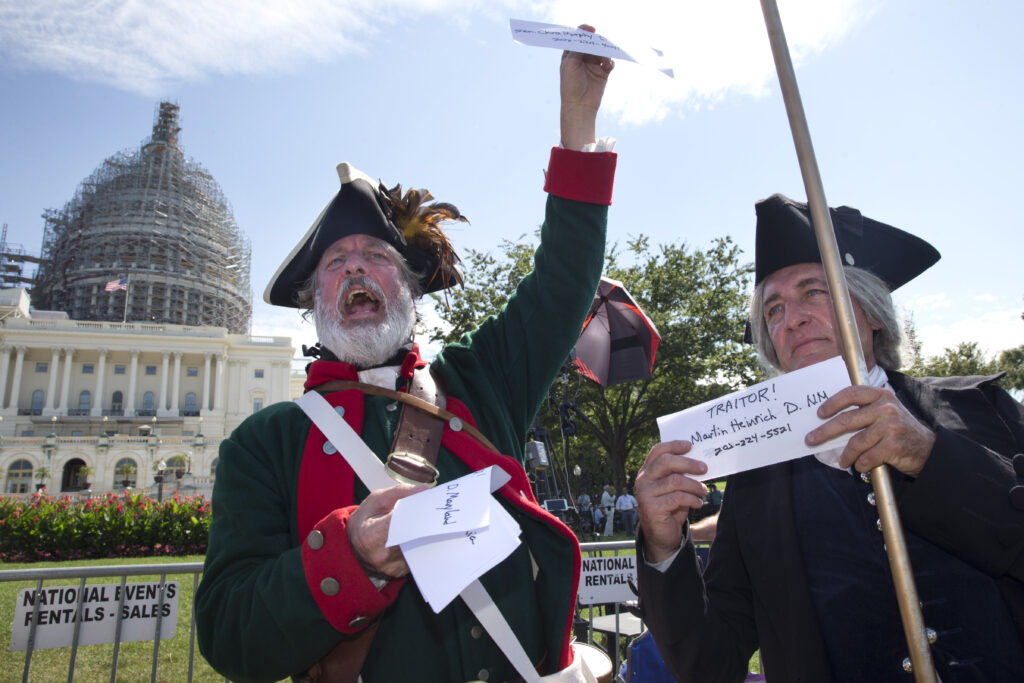What kind of Republican Party will former President Donald Trump leave after him? For there must come a time after Trump. Sure, he might try to run for a third term or arrange for a monarchical succession by Don Jr. But, though he cheats many rules, even the Donald cannot cheat mortality.
What then? Will the GOP return to its previous entry-level beliefs: limited government, free trade, the defense of liberty worldwide, and the notion that no one is above the law? Or has it become structurally illiberal, authoritarian, servile, and angry?
I pondered the question last week as I attended a conference of Buckleyite conservatives, optimists, and classical liberals in Miami, gathered loosely under the banner of Freedom Conservatism. I can’t tell you how refreshing it was to find so many articulate, like-minded people, to be able to talk without any MAGA crybabies taking offense.
Trumpery is like a virus in a zombie movie, infecting the unlikeliest think-tankers, politicians, and columnists. People you have down as solid Reaganites will suddenly, like the ravening monsters in those films, start telling you that tariffs are a terrific negotiating tool or that Ukrainian President Volodymyr Zelensky is more dangerous than Russian President Vladimir Putin.

Well, not among these cheerful Freecons. And not in Miami. The city hums with commerce, drawing eager and enterprising people from other states and countries. Low taxes, deregulation, inward migration, and free trade (the port is growing fast, and Florida just signed a trade deal with the United Kingdom to keep making Miami richer). It is a real-time refutation of MAGA pessimism.
Miami also reminds us that there is no gratitude in politics. Gov. Ron DeSantis (R-FL) resisted almost unbearable pressure from scientific advisers and federal officials to lock down and has since been completely vindicated. Florida came through with its economy intact and without the excess death rate seen in states that imposed tougher restrictions. Yet the former naval officer still got walloped by Republican primary voters for not being Trump.
If nothing else, DeSantis showed that the GOP base is not interested in the play without the prince. He offered Trump’s policy platform, devised largely by Trump’s former strategists, but with the promise of greater competence. It did not work. For reasons I shall never understand, many Republican voters are drawn to Trump himself, thrilling to the attributes they ought to find repulsive — his boastfulness, inconstancy, mendacity, vindictiveness, and loutishness.
Yet, oddly, this gives me some hope. Trump was a product of the disordered mood that overtook politics across the Western world in the aftermath of the financial crisis, a time that coincided with the rise of social media. Those were the years that brought Sen. Bernie Sanders (I-VT) to within an inch of winning, when the streets were filled with Tea Partiers and Occupy mobs.

Yet, take Trump away, and there is less ideological change than the headlines suggest. When, for example, at the end of last year, Japan’s Nippon Steel bought U.S. Steel in a $14.9 billion deal, precisely the kind of thing that Trumpsters and Natcons get most neuralgic about, only three Republican senators protested: J.D. Vance (R-OH), Josh Hawley (R-MO), and Marco Rubio (R-FL). Had Trump been in the White House, at least another 30 names might have been mustered.
When we look at the gubernatorial candidates Republican voters are choosing, we see no shortage of talented free-marketeers. No, this has never been doctrinal. For all that various factions project their desires onto Trump, he remains uninterested in ideas.
Something similar happened on the British Left at the same time. Between 2015 and 2020, Labor was led by Jeremy Corbyn, until then utterly beyond the pale. Like Trump, he was the unlikeliest imaginable leader of a personality cult, neither charismatic nor especially clever. Yet he caught the moment and fired up a group of supporters who, exactly like the Trumpsters, would hear no criticism of their man.
CLICK HERE TO READ MORE FROM THE WASHINGTON EXAMINER
At the time, there was an almost universal assumption that Labor had changed permanently and that, when Corbyn left, the base that had chosen him would pick someone else in his image. What instead happened was that the party returned so decisively to Blairite moderation that when, within months of losing the leadership, Corbyn himself was kicked out of it, it made hardly a splash.
Something similar will be true of Trump. He was not the asteroid that smashed into Earth, setting the skies ablaze and triggering a mass extinction. Rather, he was a near miss, pulling the tides out of rhythm and causing disorder as he passed but, afterward, leaving the place much as it had been before.
